Table of Contents
Magnesium is the 4th most abundant mineral in your body. And critical for optimal cognitive health. It is a cofactor in more than 600 enzymatic reactions in your body.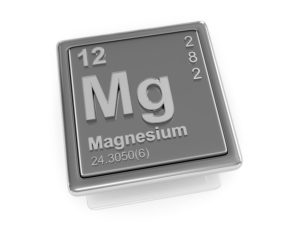
Magnesium assists in converting energy supplied by food to a useable form to produce adenosine triphosphate (ATP). Your primary cellular fuel source made within mitochondria. Magnesium is also needed for the synthesis of RNA and DNA.[i]
In your brain, magnesium regulates the activity in neuron ion channels. These channels are like tiny electrical switches. Governing the flow of neurotransmitters within neurons.
Magnesium also regulates brain synaptic plasticity. Which is critical for learning and memory.
Magnesium is critical to all of your body’s electrical and electrochemical activities. It’s involved in muscle contractions, heart rhythm, nerve function and brain cell activity.
Low blood magnesium levels show up as seizures, hypertension, stroke, migraines, and ADHD. It can also result in insulin resistance and type II diabetes.
Magnesium helps:
- Neuroplasticity: Magnesium controls the ion channels in brain cells. These tiny electrical switches control the transmission of electrical signals within and between neurons. Directly regulating learning and memory.
- Brain Energy: Magnesium is necessary for ATP synthesis. It’s needed for the Krebs cycle that turns sugar and fat from your diet into ATP. The primary fuel source produced within mitochondria in brain cells.
- Neuroprotectant: Low levels of magnesium in your diet correlate to a high incidence of neurodegenerative disease.
What is magnesium?
Magnesium plays an essential role in neuroplasticity and ATP production which is fundamental to learning, memory and cognitive function.[ii]
Magnesium is the 4th most abundant mineral in your body. But many of us in Western society are living with a magnesium deficiency. And most are unaware of this deficiency.[iii]
Dietary Magnesium Intake
Magnesium in our diet comes from foods like green leafy vegetables, beans, nuts, seeds, whole grains, poultry, beef, and salmon. Tap, mineral and bottled water also used to be good sources of magnesium. But varies by brand, source and if the magnesium has been filtered out during processing.
Needless to say, there used to be many magnesium rich foods that played an important role in your magnesium status and intake. But now most need to get magnesium chelate by using a supplement every day.
Magnesium is an essential part of neuroplasticity. Brain plasticity is the ability of your neurons to make cell-to-cell connections to form and regulate learning and memory.
With aging, or insufficient magnesium in our diet, we lose brain plasticity which results in a loss of cognitive function.[iv] This is why a young person, with an active, flexible brain easily catches new ideas. And simply thinks faster than a person whose brain has lost plasticity and is more fixed in their patterns.
Magnesium is also crucial to synthesizing ATP (adenosine triphosphate). The primary energy source produced within mitochondria in every one of your cells. Including the brain.
ATP must be bound to a magnesium ion (Mg-ATP) in order to be biologically active. This is critically important to how your brain’s mitochondria and cells use ATP. Including the synthesis of DNA and RNA.
To put this in perspective, over 300 enzymes and over 600 enzymatic reactions require the presence of magnesium ions for their catalytic action. Including all enzymes utilizing ATP.
Magnesium is even involved in how the other nootropics and dietary supplements in your stack are utilized by cells in your brain. The bottom-line is magnesium could be one of the most important additions to any nootropic stack.
How does Magnesium Work in the Brain?
Magnesium boosts brain health and function in several ways. But two in particular stand out.
- Magnesium is critical for neuroplasticity. Your brain is capable of forming new connections between neurons. When you take in new information, a signal is sent across the synaptic space between neurons. The ability of your brain to form these new connections is referred to as neuroplasticity.
This neuroplasticity is how learning and memories are formed. When these signaling pathways break down, memories fade. And you start to forget simple things like people’s names or phone numbers.
A simple example of how this works is reading this article. As you read this, your brain is forming and reforming new neural connections. When things aren’t optimal, you find yourself reading and re-reading sentences.
Magnesium is critical for maintaining this neuroplasticity. And your ability to learn and form memories. Magnesium ions control the ion channels, or electrical switches for this signaling.[v]
The more signals that these ion channels transmit, the stronger the connections between neurons. And the stronger the formation of the resulting memory.
Many studies demonstrate the detrimental impact of insufficient magnesium on optimal cognitive function.[vi]
- Magnesium is required for ATP synthesis. ATP (adenosine triphosphate) is the main energy source produced within mitochondria in brain cells. 20% of your body’s total ATP is located in your brain.
For ATP to be biologically active, it must be bound to a magnesium ion (Mg-ATP). [vii] About two thirds of your brain’s energy budget is used to help neurons send signals to neighboring neurons. The remaining third is used for housekeeping, or cellular maintenance.
Wei Chen, a radiologist at the University of Minnesota Medical School was co-author of a study on the brain’s use of ATP. The team used magnetic resonance spectroscopy (MRS) to measure the brain’s energy production during shifts in activity.
Their study on lab rats noted that when the rats were knocked out, they produced 50% fewer ATP molecules than when mildly anesthetized. Chen noted that the ATP produced when the brain is inactive goes to cell maintenance.[viii] This housekeeping is important for keeping the brain tissue alive.
The other two thirds are needed for other cellular processes including recharging neurons so they can fire. And create the electrical signals needed for neuron communication. Required for learning, memory, recall and cognition.
Without magnesium, your brain cannot produce ATP, and all brain function breaks down.
How Things Go Bad
As we get older, our brain chemistry and metabolism changes.
↓ ATP levels decline in mitochondria
↓ Cognition, learning, memory and recall decline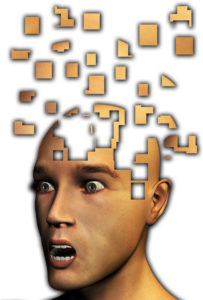
↓ Brain cell plasticity declines
↓ Free radicals damage brain cell mitochondria
All of these changes can happen at any age. And can be a result of not getting an adequate supply of magnesium.
So magnesium supplementation can help for age-related cognitive decline, as well as anyone who wants to boost cognition, learning, recall and memory.
Magnesium Benefits
Magnesium plays a critical role in supporting neuroplasticity which is fundamental for a youthful, flexible brain. A brain that is optimized to support cognition, learning and memory.
Raising brain magnesium levels has been proven to restore neuroplasticity and improve cognitive function.[ix]
Magnesium deficiency has been associated with Alzheimer’s Disease. Scientists have found that treatment with magnesium-L-Threonate decreases β-amyloid deposits in the brain. And is able to rebuild signaling pathways in neurons helping to restore memory.[x]
And magnesium is required for ATP synthesis in brain cells. Providing the mental energy needed for cognition, memory, recall and learning.[xi]
How does Magnesium Feel?
 Most neurohackers report an increased level of focus, energy, memory, and cognitive ability when supplementing with magnesium.
Most neurohackers report an increased level of focus, energy, memory, and cognitive ability when supplementing with magnesium.
You should also experience an improved quality of sleep. And have an overall improvement in mood.
Magnesium Clinical Research
One of most common reasons we use nootropics is to boost memory and mental energy. Memory loss drastically reduces quality of life. And simple brain fog makes it difficult to accomplish the simplest of tasks.
Research has shown that magnesium is involved in memory, learning and cognition on several levels. And supplementing with magnesium is one of the most fundamental things you can do to boost cognition.
Magnesium improves long-term memory
Synapses in the hippocampus and other areas of your brain strengthen the more they’re used. Even brief repetitive activity results in a substantial increase in synaptic strength. The results can last for several hours. Or even weeks afterwards. This is called ‘long-term potentiation’.[xii]
Several studies have been conducted on magnesium supplementation and its effects on memory in the last 20 years. With positive results. This study on aged and young rats found that adding magnesium to their food improved learning.[xiii]
Magnesium relieves depression
Researchers have found magnesium works in the hippocampus to suppress the release of the stress hormone ACTH (adrenocorticotropic hormone). This is the hormone that tells your adrenal glands to release more cortisol and adrenaline.
Too much cortisol eventually damages the hippocampus in the brain. This causes a negative feedback loop which results in even more stress. Which is toxic to the brain and your entire body. And one of the causes of chronic depression.
A study was done with 5,708 people aged 46-49 and 70-74 years old in Norway. The aim of the study was to examine the association between magnesium intake and depression and anxiety.
The researchers concluded that low magnesium intake is related to depression. And they stated, “These findings may have public health and treatment implications.”[xiv]
Another study done with 12 subjects found that magnesium supplementation improved sleep and lowered the stress hormone cortisol. Concluding that magnesium has “possible efficacy… as a mood stabilizer”.[xv]
Magnesium may relieve symptoms of ADHD
Magnesium in the treatment of ADHD is becoming more mainstream. And there is a growing body of research that supports the idea that one of the factors causing ADHD is a lack of magnesium.
A study in Poland showed that 95% of the children examined with ADD or ADHD were magnesium deficient.[xvi]
Magnesium Recommended Dosage
Recommended magnesium dosage in most common forms is 400 mg per day. But the problem is most magnesium supplements don’t work well as a nootropic. Because they don’t cross the blood-brain barrier.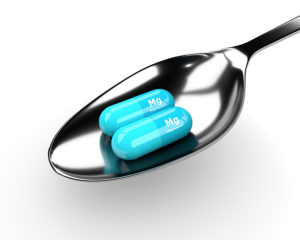
Research begun at MIT by Dr. Inna Slutsky came up with a new magnesium supplement called Magnesium-L-Threonate (MgT). This new magnesium compound easily crosses the blood-brain barrier.[xvii]
This form of magnesium was patented and now produced by MagteinTM Science. Several supplement companies sell magnesium with this branded form of magnesium.
Recommended dose of Magnesium-L-Threonate is up to 1 gram per day to avoid magnesium deficiency.
Chelated magnesium and lab-grown magnesium are suitable alternatives and covered in more detail below.
Magnesium is water-soluble so you don’t need to take it with a meal, or healthy fat.
Magnesium Side Effects
Most forms of magnesium can cause diarrhea, and bloating, and can lower high blood pressure if used in excess. So, be careful if you are using meds to lower blood pressure because using too much magnesium can mess with how this med works.
Magnesium-l-Threonate contains less elemental magnesium per dose and should not cause gastrointestinal upset.
Best type of Magnesium to buy
Magnesium is sold as magnesium aspartate, Bisglycinate, citrate, lactate, oxide, chloride, Taurate, magnesium L-Threonate, pidolate, magnesium citrate, and magnesium sulfate. I suggest avoiding magnesium oxide or citrate for nootropic use because they cannot easily cross the blood-brain barrier.
Depending on the type of magnesium; it comes in capsules, chewable tablets, powder, extended release tablets, or in a liquid solution.
Magnesium oxide is widely available in supermarkets, drug stores and vitamin shops. It’s popular because it’s cheap to manufacture. But it’s not chelated, and your body does not recognize it as a mineral it can readily use.
As an individual supplement, the patented form of magnesium-l-Threonate (MgT) called MagteinTM easily crosses the blood-brain barrier. And is recommended because even in high doses does not cause diarrhea.
Most multivitamins include a small amount of magnesium oxide which is useless as an ingredient.
A far better option is Click for Performance Lab® Magnesium providing 150 mg elemental magnesium. One dose is 3 NutriCaps® Pullulan Capsules with a little Nu-FLOW® Rice Concentrate used as a flow agent.
One of the many benefits of magnesium as a nootropic is in helping you fall asleep and stay asleep. But you need higher doses of magnesium to accomplish this. And I get my extra magnesium from …
Click for Performance Lab® Sleep which contains a combination of magnesium BiGlycinate, magnesium Taurate, and NutriGenesis® magnesium (100 mg). This sleep stack also contains L-Tryptophan (200 mg), CherryPURE® Tart Cherry Concentrate (500 mg), and Lemon Balm Extract (200 mg).
The magnesium in this sleep stack works with L-Tryptophan to help synthesize serotonin which then produces melatonin in your brain. Tart Cherry is a natural source of melatonin. And Lemon Balm helps boost the use of GABA in your brain. I highly recommend this nootropic sleep stack, and you can find my full review here.
Nootropics Expert Recommendation
Magnesium up to 1 gram per day
 I recommend using Magnesium as a nootropic supplement.
I recommend using Magnesium as a nootropic supplement.
Your body does not make Magnesium on its own. So to get its benefits it needs to come from your diet. Or you must take it as a supplement.
Magnesium is especially helpful for boosting memory, learning, recall, mood and cognition.
Magnesium is also particularly useful to help alleviate some of the symptoms of ADHD. And to help restore memory caused by neurodegenerative disease like Alzheimer’s.
While most forms of magnesium are helpful for overall health, most are not very helpful for cognitive health. So choose your magnesium supplement wisely and perhaps even pair with Vitamin D to avoid Vitamin D deficiency.
Magnesium is also useful to help you fall asleep and stay asleep. I recommend my favorite sleep stack Click for Performance Lab® Sleep which has magnesium, L-Tryptophan, CherryPURE® Tart Cherry extract, and Lemon Balm extract.
As an individual nootropic supplement, I recommend magnesium-L-Threonate (MgT). Because MgT has been proven in the lab to easily cross the blood-brain barrier. And to boost cognition.
And if you are counting on getting at least some magnesium from your multivitamin supplement, know that most brands use magnesium oxide which is cheap and not bioavailable.
I use and highly recommend: Click for Performance Lab® Magnesium

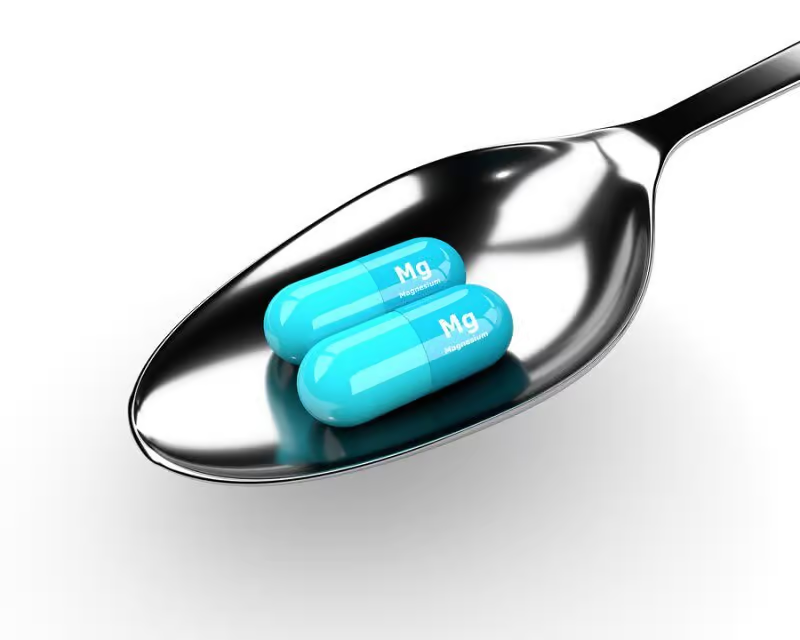
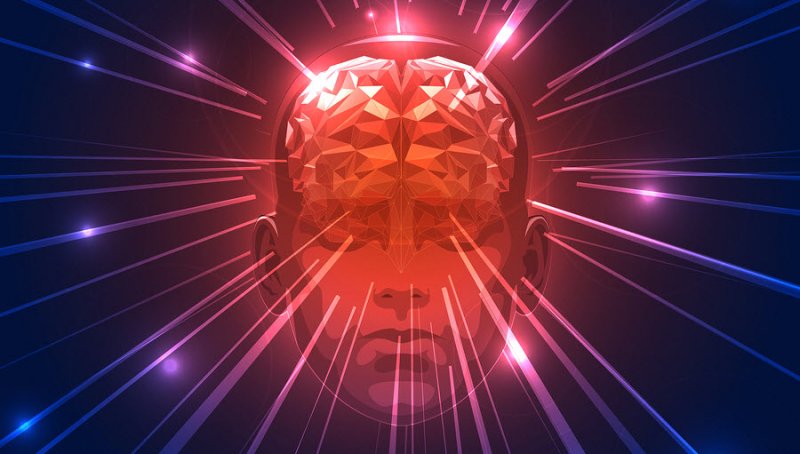





Join The Discussion - 271 comments
Shaun
August 31, 2021
This article worries me,
“Glutamates in Magnesium Chelates” by Dr. Carolyn Dean
It says some magnesium products labeled as chelates, contain magnesium glutamate, and it makes your symptoms of high glutamate worse.
Do you think this specific product is really a Bisglycinate chelate or maybe also glutamate?
NOW Foods Magnesium Bisglycinate
Thank you!
David Tomen
August 31, 2021
Shaun, she is talking about a specific form of magnesium bound to glutamate.
Magnesium Bisglycinate is magnesium bound to glycine and NOT glutamate. There are several chelated forms of magnesium available. The only ones containing glutamate are the ones called magnesium glutamate. A very different form of magnesium.
shaun
September 1, 2021
But she says some products marketed as magnesium chelates are actually magnesium glutamate, do u think the magnesium bysclynate of now foods are really as advertised?
David Tomen
September 1, 2021
Shaun, I suggest you read that article again and more closely. She does say ALL magnesium chelates are magnesium glutamate.
If the magnesium is manufactured by a respected company who can prove they have a robust testing program and are willing to share those tests with you then I’m sure Magnesium Bisglycinate is really in the capsule and not something else.
shaun
September 1, 2021
Ok thank you, does magnesium glycinate cross the blood brain barrier?
I only read that l-threonate can do that, i did see a link u shared on this comment section but i could not find that what u said ”as long as it’s chelated it crosses the blood brain barrier”.
Thank you!
David Tomen
September 1, 2021
Magnesium glycinate gets into the brain but there is some debate on which form of magnesium most easily crosses the blood-brain barrier. The developers of magnesium l-threonate tells up that their version is best. I have tried both and find both effective as a nootropic supplement.
shaun
September 3, 2021
You say maximum is 1 gram per day, you mean 1 gram of elemental magnesium or total amount?
If i take like 500-600 gram elemental magnesium (magnesium glycinate) per day plus magnesium from foods, do i risk Magnesium toxicity?
I read too much magnesium can cause complications, even cardiac arrest.
David Tomen
September 5, 2021
Shaun, good question and I go by the total amount because otherwise it’s too difficult to figure out how much elemental magnesium you are getting. Total magnesium is easier to gauge. But you are correct that like everything else “more is NOT better”. I think you’ll feel it before you get anywhere near cardiac arrest.
shaun
September 10, 2021
I recently bought magnesium bisglycinate powder from NOW Foods, if i take a half a teaspoon which is 125mg elemental magnesium, i always have to go to the toilet to do a number 2. With empty stomach but also with food.
Did i buy a bad product, is the magnesium not absorbed?
David Tomen
September 11, 2021
Shaun, going to the toilet after using magnesium is a sign that you are using too much. Not that you got a bad product.
Tania
August 17, 2021
Hi. I cannot decide between High absorption magnesium 100% chelated (dr.best brand) or Neuro Mag life extension (l-threonate magnesium). If you can help me.Thank you. (Sorry about my english)
David Tomen
August 18, 2021
Tania, you will get the full benefits of magnesium using either one. Why not choose one and use it for a month then try the other one for a month. And see which works better for you.
Tania Curiel
August 20, 2021
¡Thank you! Mucha gracias : )
Ben
June 14, 2021
Hi David,
Will “Magnesium Amino Acid Chelate” (Chelated Magnesium from lifetune brand) have the same effect on the brain as Magnesium L-threonate? It’s significantly cheaper but if Magnesium L-threonate works much better in the brain, i might try it. Thanks in advance.
David Tomen
June 16, 2021
Ben, magnesium is transported across the blood-brain barrier as long as it is chelated: https://www.ncbi.nlm.nih.gov/books/NBK507259/
shaun
August 30, 2021
I’m sorry if i missed it in the article link you showed, but where do you read that Magnesium crossed the BBB as long as it’s chelated?
And does Magnesium Bisglycinate cross the BBB just as effective as L-Threonate?
Why is L-Threonate so much more expensive then Bisglycinate?
David Tomen
August 31, 2021
Shaun, magnesium does cross the blood-brain barrier (https://www.ncbi.nlm.nih.gov/books/NBK507259/).
The professors who invented Magnesium L-Threonate claimed better absorption which may be true. But according the the above study, it gets there anyway.
The important thing for magnesium, or any mineral for that matter, is to avoid getting a mineral supplement made from ground up rock. The chelated forms of magnesium are more like the magnesium you’d get from food.
Magnesium L-Threonate is likely more expensive than Magnesium Bisglycinate because it is patented.
Justin
June 12, 2021
When do you recommend taking Magnesium L-Threonate? I’ve heard morning and night but what do you recommend or does it even matter?
David Tomen
June 13, 2021
Justin, it’s good to take any form of magnesium before bed because it helps relax muscles, and it activates the GABAa receptor which is the same receptor Ambien works with to help you get to sleep.
But magnesium is also a cofactor in the synthesis of some of the neurotransmitters and other brain functions you use during the day.
Long-term use of magnesium however ensures you have adequate magnesium in your system all the time. So then it doesn’t matter when you take it as long as you continue to use magnesium.
kevin
July 20, 2021
Can all the performance lab products be crushed in to a powder and stirred in to a drink ?
I have trouble swallowing tablets
thanks
David Tomen
July 21, 2021
Kevin, most of the Performance Lab supplements come in capsules. So you could open the capsules and dump the powder in whatever drink you prefer for easier swallowing.
Jozef
June 6, 2021
Hi David, Magnesium Glycinate with or without meal? Thank you
David Tomen
June 7, 2021
Jozef, Magnesium Glycinate is water soluble so you can take it with or without a meal. Either way your body and brain will use it.
Jesse
May 12, 2021
I ordered this how much is safe to take each night, I’m a bit confused about the quanity
It says 2000 then say 144?
Life Extension, Neuro-Mag, Magnesium L-Threonate
I got this because I read it’s the only one to get into the brain and help so is taking one every night safe, I felt it work great but just making sure is this a lot or not? is one a night good?, or should I take this twice per day
Thanks
David Tomen
May 13, 2021
Jesse, that supplement contains 144 mg of “elemental magnesium”. The rest is Threonic acid which is a metabolite of Vitamin C. That dosage is fine to use once or twice per day.
Jesse
May 14, 2021
I suffer from a bit of OCD, ADD and Anxiety, and panic attacks and I cannot find much information on the net but would this type of magnesium go into the thalamus of the brain which is responsible for a lot of neurological brain disorders?
Thank you
David Tomen
May 14, 2021
Jesse, magnesium goes everywhere in your body and brain. It’s involved in 600 enzymatic reactions. I’m sure it gets to the thalamus as well.
But there is no one pill solution for fixing OCD, ADD or anxiety. I doubt just magnesium will do it on its own. Do a search of this site for OCD and see what else turns up. Someone told me yesterday that the first day using NAC turned off OCD for them.
And see my articles on ADD and anxiety for other ideas as well.
Pan
April 20, 2021
If my bloodwork shows my Magnesium levels are already in the normal range, would my ADHD still benefit from taking a Magnesium supplement?
David Tomen
April 22, 2021
Pam, it may help depending on the kind of magnesium you use. Because some magnesium can’t cross the blood-brain barrier.
You may want to try 200 – 400 mg magnesium chelate before bed. Like Magnesium L-Threonate or Magnesium Glycinate. It’ll help you sleep and make you more ‘regular’ the next morning.
Lorna
April 1, 2021
Hello David,
Now that I’m looking at your recommended magnesium l-threonate, is it required I take calcium with this? I’ve always seen the two combined but don’t know that it’s a must.
For sleep, do you take this before bed, or does it matter when? I’m grateful to you for opening my eyes to such an important supplement. Thank you so much!
David Tomen
April 1, 2021
Lorna, you often see calcium + magnesium supplements because your system needs the magnesium to deliver calcium into bones. Otherwise, simply supplementing with calcium will likely end up as plaque buildup in your arteries. Which you don’t want.
I recommend any type of magnesium that is chelated. Magnesium L-Threonate has been shown in clinical studies to readily cross the blood-brain barrier. It is a chelated from of magnesium. But you could also use other forms such as magnesium glycinate.
I suggest using it before bed because magnesium helps relax muscles, lowers blood pressure, and connects to the GABAa receptor which is the same receptor Ambien connects with to help you get to sleep.